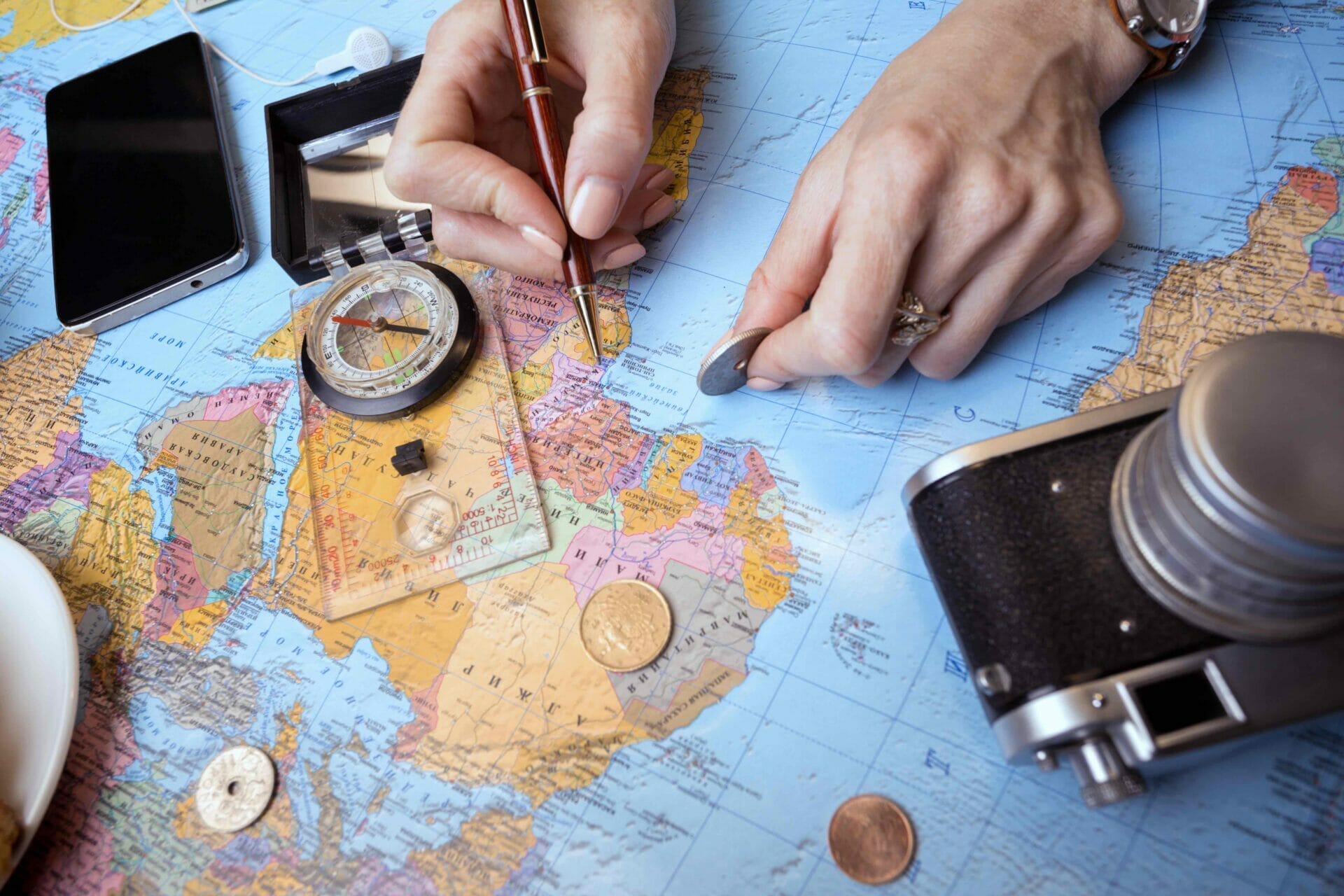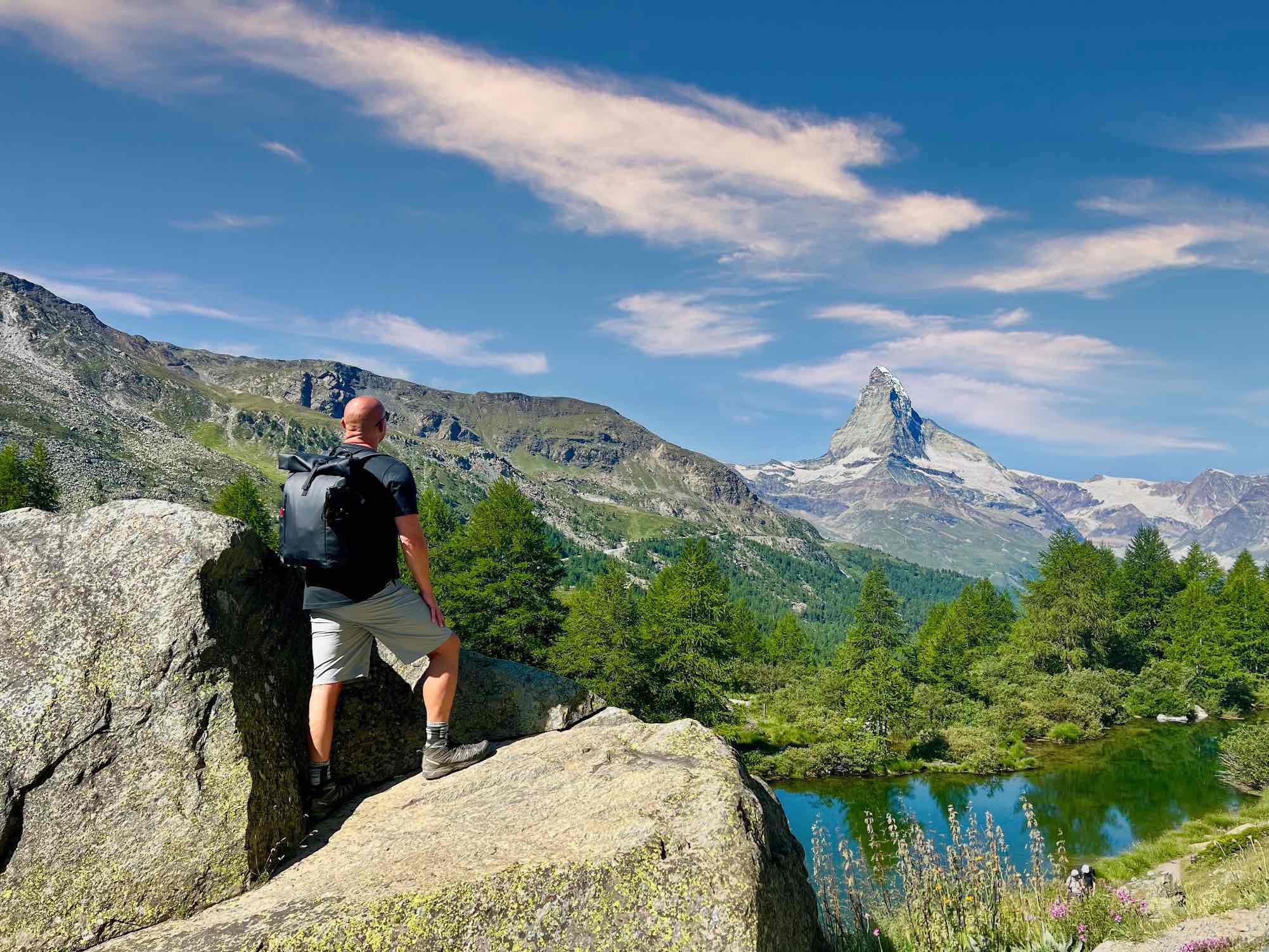Table of Contents
ToggleBrief Overview
It’s the trip you’ve always wanted to take but never quite figured out how to make happen. Here are some helpful hints for organising your trips so that they go off without a hitch, instead becoming a time of tranquil bliss.
Travel plans can go from being a fantastic concept to being a stressful ordeal by the time the trip actually begins. Planning a tour takes a lot of time and effort, but the results are often worth it. The inability to anticipate and prepare for “unseen difficulties” is a common result of inexperience in trip planning.
90% of travel challenges can be avoided with a little amount of planning and the upkeep of a customised trip planner. Get ready for the proverbial “rainy day” with these helpful travel planning advice.

Pick your destination
Whether it’s the picturesque location of a movie or a friend’s captivating tales of their most recent trip overseas, it’s likely that the inspiration for all of this comes from the internet. The majority of the time, uncontrollable events dictate a travel itinerary.
Things to keep in mind
- When one’s thoughts wander to distant shores, majestic peaks, or lush forests, there’s really nothing to say. However, knowing how to pick the best destination for the time of year is essential for planning a vacation.
- Find out when it’s ideal to go to each location. Typically, the best time to visit the beach and the best time to explore the mountains are two very different things.
- Consider the cost factor while picking a destination. Some places are more enjoyable in a luxury budget than others. Going to a luxury destination during the shoulder season (a few weeks before or after the official ‘busy season’) can result in some good discounts on hotels and flights.
- Before setting out on a trip, it’s important to think about how to ensure everyone’s safety (especially solo female travelers).
- Accessibility, or lack thereof, is another consideration when deciding whether or not to travel somewhere. There are usually plenty of flights, trains, and highways to accommodate the throngs of tourists who go to the most well-known tourist spots.
Decide the duration of your trip
There is a fine line between being bored and thoroughly enjoying a holiday destination. But there is no one “right” amount of time to spend at any one location. In many cases, it is determined by the visitors’ intended itinerary and goals for their trip. Although some tourists appreciate a fast-paced itinerary that takes them from one city to the next, others prefer to take it easy and soak up the local culture, cuisine, and atmosphere. You should not overlook this important detail, as it will have a positive impact on both your schedule and your finances.
Things to keep in mind
- Accurately estimating the number of days needed to visit a destination is a crucial part of being a successful trip planner. A flight itinerary could potentially shorten a trip by a few hours compared to a road trip schedule.
- Shorter trips (under 8 hours) can also be accomplished over the weekend if the night time is utilised for travel.
- A lengthier total trip time is to be expected if your itinerary includes many city stops. Comparatively, a trip to a beach resort town in the tropics would not require as much time because there wouldn’t be as much to see.
- When planning a trip that will last more than 7 days, it is smart to leave at least one day free. This provides breathing room in case of unforeseen circumstances, such as flight/train delays, road traffic, weather delays, or a last-minute decision to stay longer at a particular destination.
Book flights, train, or bus tickets, and accommodation
The next stage in learning how to plan a trip to perfection is booking your flight, rail, or bus transfer in plenty of time before you leave. Booking your transportation a few months in advance will help you stick to your budget, as flight and train tickets are subject to availability and price increases over time. Whether you want to taste the authentic cuisine of India or discover the hidden gems of Brazil, planning beforehand can save you time and stress on your trip.
Things to keep in mind
- Do not purchase non-refundable plane or train tickets until you are 100% positive that you will be able to keep those plans. If you can, buy refundable tickets in case your plans change.
- As airfares are notoriously unpredictable, utilising Google Flights Tracker is a must, or Skyscanner.net
- If you are planning a trip during the destination’s peak season, you may anticipate a significant increase in the cost of airfare and hotel rooms.
- When making hotel and flight reservations, use a credit card that awards frequent flier miles or points at a rate of one mile or point for every pound spent.
Plan the day to day activities
Having travel arrangements conceived on the spur of the moment and guided only by one’s gut feeling always seems exciting and adventurous. However, since everything is so impromptu, there may be many days where the schedule goes awry.
Things to keep in mind
- An essential part of knowing how to plan a trip effectively is having a basic notion of what activities should be done on what day depending on the budget and time at disposal.
- Evening and night time hours are preferable for making transfers between locations. Seeing as how most excursions and pursuits must take place during daylight hours, this will allow for plenty of time to do so.
- Water sports, adventure sports, boat rides, and safari rides are best reserved at the actual location to both save money and leave room for haggling.
- If you want to unwind and take it easy on your trip, schedule only one or two things every day in your itinerary.
- Skiing, boating, scuba diving, and other popular tourist pursuits may be unavailable at certain locations outside of peak tourist season. Prior to your trip, be sure to research the available entertainment options.
Pack wisely and make necessary adjustments
After making your reservations, the next step in trip planning is to pack your bags with the destination and any external considerations in mind. Changing circumstances, such as the weather, the political climate, or a holiday season, might have a negative impact on travel plans. Tourists who want to avoid having to make last-minute changes to their trip itinerary due to unforeseen circumstances can conduct some background reading before setting out on their trip.
Things to keep in mind
- On trips where chilly or wet weather is predicted, an extra shirt, sweater, pair of trousers, or jumper is always useful.
- Sunscreen, lotion, and insect repellent may appear unnecessary, but they are essential for warding off skin infections.
- Understanding the history, geography, and customs of a place you plan to visit is an important element of being culturally sensitive and practising responsible tourism. To prevent offending or embarrassing the locals in any way during a visit, it’s smart to familiarise oneself with the cultural norms of the destination beforehand.
Here, at last, is where the pieces fall into place. I hope you enjoy your trip and get to relax and unwind. Head to the airport, get on the plane (don’t forget your passport!), and relax. You deserve it.
Don’t worry if you’re feeling anxious; that’s natural. You’re about to go through a major transition as you set out on a fantastic new journey. Every traveller has experienced the uncomfortable feelings of anxiety, nervousness, or uncertainty. But you’re here, so congrats! Have faith in your preparations and rely on your gut as you go on this once-in-a-lifetime adventure. I promise you that.
Use this post as a roadmap to get yourself organised and ready for your trip. You may rest assured that you won’t forget anything important on your trip, and that you’ll also have enough of money to spend. It might be as easy as buying a plane ticket and gathering your belongings, or as difficult as uprooting your entire existence and starting over somewhere else in order to live as a nomad.
Stay organised and motivated and nothing will go wrong!
Note: I didn’t include visas and vaccines because they aren’t as commonly required as the items above, although you should still double-check to be sure you have all you need.
Save this post (pin it)
Other Travel Planning Related Guides
Be sure to check out our other exciting guides related to travel planning:
Do you have travel planning tips to share with us and help other readers prepare for their next trip? Let us know in the comments!
Note: This post may contain affiliate links. When you make a purchase using one of these affiliate links, we get paid a small commission at no extra cost to you.

